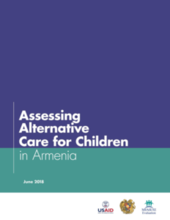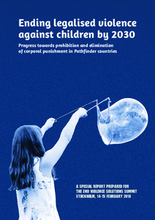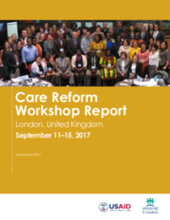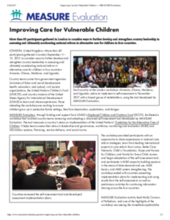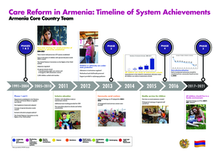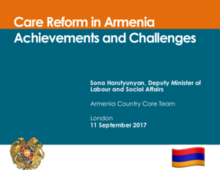childrens_living_arrangement
children_living_without_bio
Displaying 11 - 20 of 38
This report presents the findings of an assessment workshop aimed at bringing together key stakeholders—decision makers, policy developers, service providers, civil society representatives, and donors—to assess and identify the main care reform areas in Armenia in which action is needed.
Prepared for the Agenda 2030 for Children: End Violence Solutions Summit, held in Stockholm, Sweden, on 14-15 February 2018, this report tracks progress towards prohibition and elimination of corporal punishment of children in Pathfinding countries.
The Armenian Ministry of Labor and Social Affairs (MOLSA), with funding and technical assistance from the Displaced Children and Orphans Fund (DCOF) of the United States Agency for International Development (USAID) and MEASURE Evaluation, conducted a self-assessment of the care reform system at a participatory stakeholder workshop held in Armenia.
This report outlines the sessions of a workshop help in London with representatives from four countries participating in a USAID/DCOF-funded activity aimed at intensifying country leadership in advancing national efforts on behalf of children who lack adequate family care, and provides highlights, key discussion points, and action items.
Child Protection organizations in Armenia have recently joined forces to launch a campaign to end violence against children, called "Share Love, Not Violence."
International actors and representatives from Armenia, Ghana, Moldova, and Uganda convened in London September 11-15 2017 to learn and share experiences to inform the alternative care reform process in the four countries.
This infographic provides a historical timeline of the alternative care reform process in Armenia, marking key achievements in the establishment of policies, strategies, guidelines, procedures, and programs to improve the quality of care and protection for children without adequate family care.
This presentation from the Deputy Minister of Labour and Social Affairs of Armenia provides an overview of the demographic data of Armenia and offers a thorough review of the situation of children's care, and care reform efforts, in Armenia.
New MEASURE Evaluation two-year program will assess and improve Armenia's child protection system, with particular attention to children living in, or at risk of entering, residential care or those left without parental care.
Armenpress News reports 633 children registered as living in orphanages in Armenia, with 450 of those children being children with disabilities.

